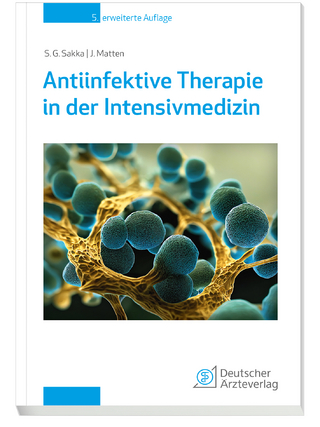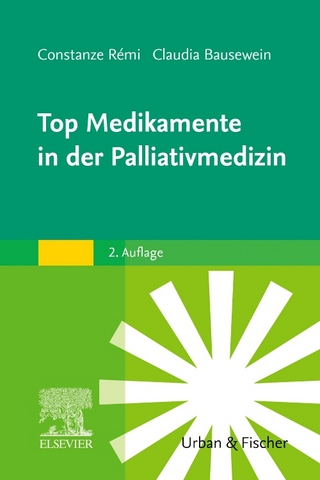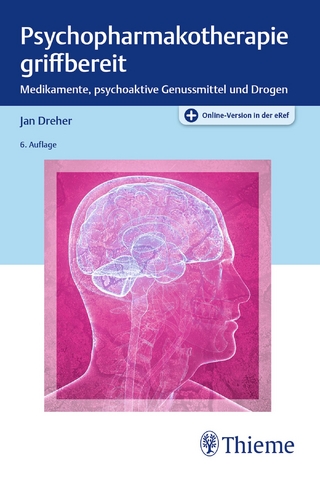
Case Studies in Medical Toxicology
Springer International Publishing (Verlag)
978-3-319-56447-0 (ISBN)
The ACMT National Case Conference (NCC) is a monthly discussion of novel or interesting cases in medical toxicology. Participation is through online webinar, and the conferences are recorded to allow for review at any time. The cases in this book are taken from recordings of NCC with edits and revisions by contributors and editors to demonstrate educational points. The majority of the case information is from the original recording and represents actual patient presentations. However, some of the details have been changed and fictional information added to enhance the educational value. This volume covers a broad range of toxicological topics, and specialty guidance is offered at the end of every case to aid non-toxicologists. The dilemmas are applicable to both academic and clinical medicine. A list of relevant questions is also provided for each case. Subjects include common toxicological problems, rare presentations of common problems, common problems with controversial treatments or difficult diagnoses, and rare problems.
Case Studies in Medical Toxicology from the American College of Medical Toxicology is a detailed reference text on specific toxicological issues and also serves as a practical review for those taking board exams. As a result, this volume is an important and necessary resource for medical students, residents, and fellows, as well as primary-care physicians, intensivists, and toxicologistsCase Studies in Medical Toxicology from the American College of Medical Toxicology is a detailed reference text on specific toxicological issues and also serves as a practical review for those taking board exams. As a result, this volume is an important and necessary resource for medical students, residents, and fellows, as well as primary-care physicians, intensivists, and toxicologists. All proceeds from this book will be donated to the Medical Toxicology Foundation.
Leslie R. Dye, MD graduated from the University Of Kansas School Of Medicine and completed a residency in Emergency Medicine and fellowship in Medical Toxicology and Hyperbaric medicine at the University of Cincinnati. She served at the Editor-in-Chief of the Journal of Medical Toxicology, has authored numerous book chapters, and has published extensively in the scientific literature. She currently serves as the Editor-in-Chief of Point of Care Content for Elsevier in addition to practicing addiction medicine. Dr. Dye is board certified in Emergency Medicine and Medical Toxicology and is the immediate past President of the American College of Medical Toxicology and the president of the Medical Toxicology FoundationDr. Christine Murphy received a master’s degree in chemistry from The College of William and Mary and her medical degree from the Medical College of Virginia. She completed her residency training in Emergency Medicine at Virginia Commonwealth University and a fellowship in Medical Toxicology at Carolinas Medical Center. She is currently an Assistant Professor at Carolinas Medical Center and Director of the Medical Toxicology Fellowship Program. Her current interests include alternative uses for existing antidotes, alternative pain management strategies, and current trends in recreational drugs of abuse. Dr. Diane Calello is the Executive and Medical Director of the New Jersey Poison Information and Education System at the New Jersey Medical School of Rutgers University. She is also a member of the Board of Directors of the American College of Medical Toxicology, and a regular contributor to the National Case Conference Webinar. She received her Bachelor of Arts from the College of William and Mary in Virginia, and her medical degree from the New Jersey Medical School she now calls home. Her residency and fellowship training was conducted at the Children’s Hospital of Philadelphia. She is board certified in Pediatrics, Pediatric Emergency Medicine, Medical Toxicology and Addiction Medicine. Dr. Calello is a national expert on pediatric lead poisoning, use of critical care methods in poisoning patients, and the impact of the opioid and emerging drug epidemic on the young child. After matriculating from the Chicago Medical School, Dr. Michael Levine completed an emergency medicine residency at the Brigham and Women's/Massachusetts General Hospital. He subsequently attended the Banner Good Samaritan Medical Center in Phoenix, Arizona, where he completed his medical toxicology fellowship. Michael Levine is currently faculty at the University of Southern California, where he serves as Chief of the Division of Medical Toxicology. His current research interests are mostly focused on toxicity from antiplatelets and anticoagulants. He is on the editorial board of the Journal of Medical Toxicology.Dr. Aaron Skolnik received his Medical Doctorate from the University of Pittsburgh School of Medicine and completed residency in emergency medicine at Brigham and Women’s/Massachusetts General Hospital in Boston, MA. Thereafter, Aaron graduated from the medical toxicology fellowship at Banner Good Samaritan Medical Center in Phoenix, AZ and joined the faculty of the University of Arizona College of Medicine, Phoenix. He is board-certified in Emergency Medicine, Medical Toxicology, and Addiction Medicine. Currently, he is completing additional fellowship training at the University of Pittsburgh in Critical Care Medicine, Neurocritical Care, and extracorporeal life support.
Case 1: Laundry Pod Ingestion in an Adult.-. Case 2: Coma and Metabolic Acidosis.- Case 3: Diet Pill Ingestion in a Child.- Case 4: Salicylate Ingestion.- Case 5: Exotic Snake Envenomation.- Case 6: Medication Error in the Delivery Room.- Case 7: Delirium and Bradycardia Following Opioid Dependency Treatment.- Case 8: Necrotic Skin Lesion .- Case 9: Isoniazid Ingestion.- Case 10: Status Epilepticus Following Recreational Drug Insufflation.- Case 11: An Acute Medical Condition in a Patient with Opiate Dependency.- Case 12: Acute Hepatitis.- Case 13: Thyroid Supplement Ingestion.- Case 14: Blue or Rigid - Pick Your Toxin.- Case 15: Overdose in a Patient with Parkinson's Disease.- Case 16: Snake Bite to the Hand.- Case 17: Ultra-rapid Opioid Detoxification.- Case 18: Concentrated Hydrogen Peroxide Ingestion.- Case 19: NIcotine Toxicity.- Case 20: A Skin Rash and Fever after Starting Antibiotics.- Case 21: Recurrent Seizures in a Patient with a Chronic Neurologic Disorder.- Case 22: Caustic Ingestion in a Toddler.- Case 23: Cyproheptadine Withdrawal.- Case 24: Digoxin Toxicity.- Case 25: Hyperlactemia.- Case 26: Tachycardia in a Patient from an Opioid Detoxification Facility.- Case 27: Hepatic Injury from "Cultural Medicine".- Case 28: Glyphophate Toxicity.
| Erscheinungsdatum | 30.01.2018 |
|---|---|
| Zusatzinfo | XVI, 256 p. 5 illus., 2 illus. in color. |
| Verlagsort | Cham |
| Sprache | englisch |
| Maße | 155 x 235 mm |
| Gewicht | 573 g |
| Themenwelt | Medizin / Pharmazie ► Medizinische Fachgebiete ► Intensivmedizin |
| Medizin / Pharmazie ► Medizinische Fachgebiete ► Notfallmedizin | |
| Medizin / Pharmazie ► Medizinische Fachgebiete ► Pharmakologie / Pharmakotherapie | |
| Medizin / Pharmazie ► Pharmazie | |
| Schlagworte | Accident & emergency medicine • Accident & emergency medicine • Biomedical and Life Sciences • Chemical • Diagnosis • Emergency Medicine • emergency toxicologist • environmental • Intensive Care Medicine • Intensive / Critical Care Medicine • Medical Research • overdoses • pharmacology • Pharmacology/Toxicology • poisoning • snake bite • Toxin • Treatment |
| ISBN-10 | 3-319-56447-1 / 3319564471 |
| ISBN-13 | 978-3-319-56447-0 / 9783319564470 |
| Zustand | Neuware |
| Informationen gemäß Produktsicherheitsverordnung (GPSR) | |
| Haben Sie eine Frage zum Produkt? |
aus dem Bereich


